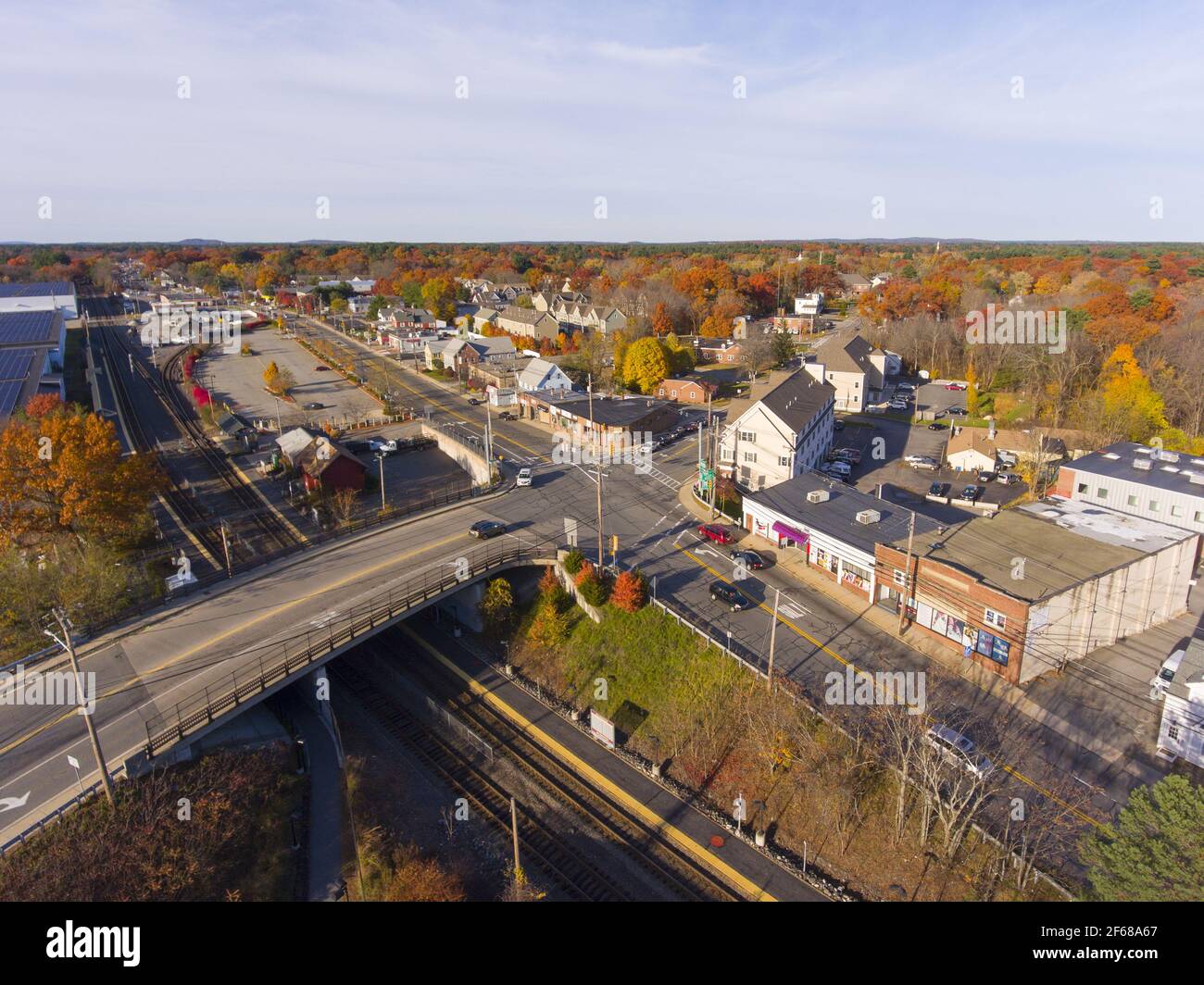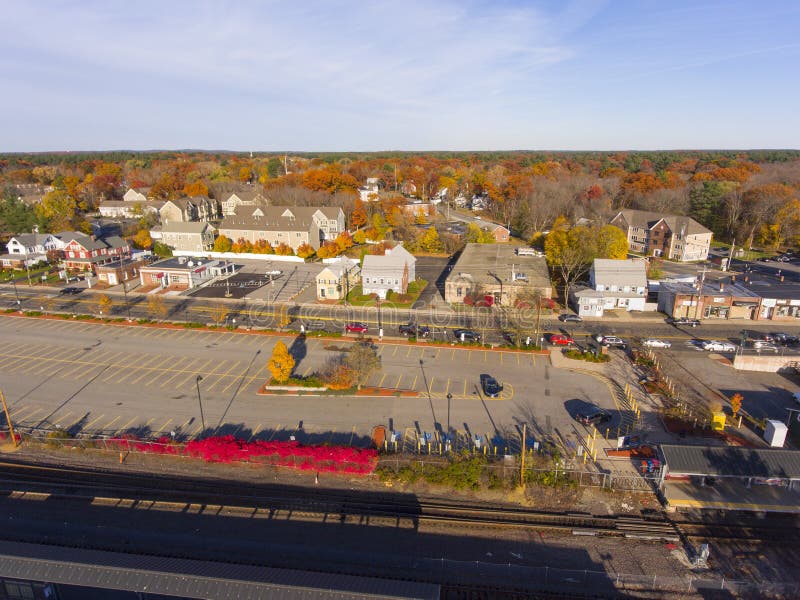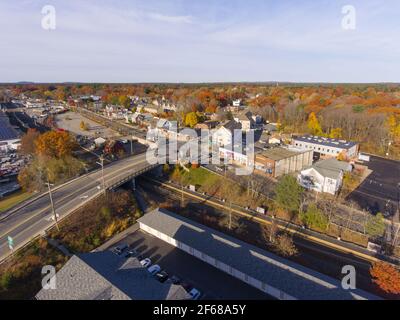There is a certain charm that comes with a place where history and daily life meet, and for many, the town of Wilmington, Massachusetts, offers just that kind of experience. This community, nestled in Middlesex County, has a story that goes back quite a ways, to a time when its very existence was formally recognized. It is a spot where a good many people, over twenty-three thousand at the last count in 2020, have chosen to make their homes, building lives and connections. This really is a place with its own special feel, a blend of tradition and the everyday happenings that make up a person's routine.
You know, when you think about what makes a town what it is, it is often a mix of things. For Wilmington, that includes its background, how many people live there, and the various things available to residents. From the way people get around to the different services that help a community run smoothly, there is quite a lot to consider. It is more or less a complete picture of what living in a specific place can be like, with its own rhythm and way of doing things. This Massachusetts town, in some respects, truly offers a full scope of community living.
So, whether you are someone just curious about different places or perhaps looking for a new spot to settle down, getting to know a bit about Wilmington can be quite interesting. It is a chance to see how a community organizes itself, provides for its people, and maintains a sense of identity over time. There is a great deal to uncover about this particular area, from its public spaces to the places where people handle their personal business, and even where they go for some relaxation. It is, you know, a look into the fabric of a New England town.
Table of Contents
- Wilmington, MA - What Is Its Story?
- How Does Wilmington, MA Support Its People?
- What Can You Discover in the Town of Wilmington, MA?
- How Does the Town of Wilmington, MA Manage Finances?
- Connecting with the Town of Wilmington, MA
- A Look at Homes in the Town of Wilmington, MA
- Community Projects in the Town of Wilmington, MA
- The People of the Town of Wilmington, MA
Wilmington, MA - What Is Its Story?
Every place has a beginning, and the town of Wilmington, Massachusetts, has a specific date when it officially came into being. It was on September 25, 1730, that the General Court of Massachusetts, which is the state's main law-making body, passed an act that formally recognized this new town. This act was, you know, a very important step, creating a distinct area from what was there before. It marked the start of Wilmington as its own recognized community, with its own set of responsibilities and a clear identity. This moment really set the stage for everything that would follow in the town's life.
So, for nearly three hundred years, Wilmington has been growing and changing. From that initial act of incorporation, it has developed into the community we see today. Knowing a little about this early history helps to paint a picture of the place, offering a bit of background to its current state. It is a way to appreciate the journey a town takes over many generations. This sense of continuity, you might say, is quite a significant part of what makes a place feel established and lived-in. It is, in fact, a story that continues to unfold with each passing year.
The story of Wilmington, Massachusetts, is not just about its founding date. It is also about the people who have lived there, the decisions made, and the way the community has adapted. You can, for instance, look at a brief overview of its past, which helps to put its present into perspective. This includes details about how its population has changed over time, how it has organized its resources, and how people move around within and outside its borders. It is, basically, a look at the whole picture of what makes this particular town tick.
How Does Wilmington, MA Support Its People?
A town's strength often comes from how well it supports the people who live there, and Wilmington, Massachusetts, has various ways of doing just that. There are many different parts of the local government, for example, that work to provide services and keep things running smoothly. These parts, often called departments, each have a specific job, whether it is looking after public safety, maintaining roads, or helping with community activities. It is, in a way, a whole system set up to make daily life a bit easier for everyone who calls Wilmington home.
When you think about the practical side of living in a town, these departments play a pretty big role. They are the ones who handle a lot of the everyday tasks that you might not even notice until you need them. From making sure that public spaces are cared for to providing information about local services, their work is quite essential. It is, you know, the nuts and bolts of how a community functions, ensuring that people have access to what they need. This kind of organized support is, arguably, a key element of a well-run town like Wilmington, Massachusetts.
The town also has various resources available to its residents. This could include places where people can go for information, or perhaps facilities that help with different needs. Knowing where these resources are and how to use them can make a real difference in someone's experience of living in a place. It is all part of the larger network that helps to connect people with the services and support they might require. This focus on providing for its people is, basically, a core part of what the town of Wilmington, Massachusetts, aims to do for its residents.
What Can You Discover in the Town of Wilmington, MA?
If you are curious about what a place has to offer, the town of Wilmington, Massachusetts, has a good deal to explore. For instance, the main administrative building, often called the town hall, is a central spot for many public matters. This is where a lot of the official business gets done, and where you can often find information about the town's operations. It is, in some respects, the heart of the local government, a place where decisions are made and services are managed for the benefit of the community.
Beyond the town hall, there are other important parts of the community that help shape daily life. Schools, for example, are a big part of any town, providing places for young people to learn and grow. There are also places where you can handle your money, like banks, which are quite important for personal finances. For those who need to travel or handle official documents, there might be facilities for things like passports. And, of course, a town also offers opportunities for people to relax and enjoy themselves, through various leisure activities. These are all elements that contribute to the overall experience of living in the town of Wilmington, Massachusetts.
It is worth noting that a town's services also extend to how it connects with larger systems. For instance, being an official part of the Commonwealth of Massachusetts means that Wilmington shares information and operates within a broader framework. The Massachusetts Bureau of Geographic Information, or MassGIS, is one example of how data is collected and shared to help with various planning and public service efforts. This kind of connection ensures that the town of Wilmington, Massachusetts, is part of a larger network of information and support, which is quite helpful for managing a community.
How Does the Town of Wilmington, MA Manage Finances?
Managing the money side of things is a very important part of running any town, and the town of Wilmington, Massachusetts, has clear ways of handling its financial matters. When it comes to paying local taxes, for example, there are specific guidelines that residents and property owners need to follow. These taxes, which can include real estate, motor vehicle excise, or personal property bills, are a key source of funds for the town's operations and services. It is, in a way, how the community collectively contributes to its own upkeep and development.
For those who need to pay these bills, there are specific pieces of information that help ensure the payment is applied correctly. For real estate accounts, you usually need to refer to a parcel identification number, which helps to link the payment to the correct property. For motor vehicle excise taxes, the registration number of the vehicle is what helps identify the account. These details are, you know, quite essential for making sure that everything is processed accurately. It is a system designed to keep financial records in order for the town of Wilmington, Massachusetts.
The town's approach to financial management is about ensuring that public funds are handled responsibly and transparently. This involves clear instructions for payments and proper identification of accounts. It is, basically, a fundamental aspect of how a town operates, allowing it to fund its schools, maintain its infrastructure, and provide all the other services that residents rely on. This careful handling of money is, arguably, a sign of a well-organized community, something the town of Wilmington, Massachusetts, aims to embody.
Connecting with the Town of Wilmington, MA
Being able to reach out and connect with your local government is pretty important for any resident. For the town of Wilmington, Massachusetts, there are specific ways to get in touch with the town hall, which serves as a central point for many inquiries. The address for the Wilmington Town Hall is 121 Glen Road, Wilmington, MA 01887. Knowing this physical location is, you know, helpful for anyone who needs to visit in person for official business or to ask questions.
In addition to the physical address, towns often provide other ways to communicate. While the provided text mentions a phone number for the town hall, the specific number itself is not included. However, the presence of a phone option means that residents can typically reach out with their questions or concerns without needing to make a trip. This availability of different contact methods is, basically, about making it easier for people to get the information or help they need from the town of Wilmington, Massachusetts.
These points of contact are more or less about making the town's operations accessible to its people. Whether it is a direct visit to the town hall or a phone call, these channels help to bridge the gap between the local government and the community it serves. It is about fostering a sense of connection and ensuring that residents feel they can engage with their town's administrative side. This kind of open communication is, arguably, a very important part of how the town of Wilmington, Massachusetts, functions day to day.
A Look at Homes in the Town of Wilmington, MA
The housing market is often a good indicator of a town's activity and appeal, and Wilmington, Massachusetts, has its own unique real estate picture. For example, information about recently sold properties can give you a sense of what is happening in the local market. This kind of data provides insights into what types of homes are being purchased and at what price points, offering a snapshot of the current housing trends within the community. It is, in a way, a reflection of the demand and availability of places to live in the area.
Sometimes, a particular property might even make news, like the mention of a "young, elegant colonial" that recently became available in Wilmington. This kind of detail can highlight the types of homes that are popular or noteworthy in the area. It suggests that there is a range of housing styles and ages, from newer constructions to perhaps older, well-maintained residences. This variety in housing options is, you know, a common feature of many established communities, offering different choices for different tastes and needs within the town of Wilmington, Massachusetts.
Understanding the real estate landscape is more or less about seeing how the town is growing and changing from a residential perspective. It reflects where people are choosing to live and what kinds of homes are being built or bought. This aspect of community life is quite dynamic, always shifting with economic conditions and personal preferences. It is, basically, another layer to the story of the town of Wilmington, Massachusetts, showing how its physical spaces are evolving to meet the needs of its residents.
Community Projects in the Town of Wilmington, MA
Towns are always working on projects to improve things for their residents, and Wilmington, Massachusetts, is no different. For instance, there was a significant development regarding the Wildwood Elementary School. The Massachusetts School Building Authority, which is a body that helps with school construction and renovation projects across the state, made a vote on June 18, 2025, concerning this particular school. This kind of decision is, you know, very important for the community, especially for families with children who attend the school.
These types of projects show how a town invests in its future and its public services. When a school building authority votes on a project, it often means that there are plans in place to update or improve educational facilities. This can have a very positive impact on the learning environment for students and on the overall quality of life for families in the area. It is, in a way, a concrete example of how the town of Wilmington, Massachusetts, works to enhance the resources available to its younger population and the broader community.
Such initiatives are, arguably, a key part of how a town evolves and keeps pace with the needs of its people. They reflect a commitment to providing modern and effective public spaces, whether they are schools, parks, or other civic buildings. It is all part of the ongoing effort to make the town of Wilmington, Massachusetts, a good place to live, learn, and grow. These projects, basically, represent the town's dedication to its residents and its long-term well-being.
The People of the Town of Wilmington, MA
At the heart of any town are the people who call it home, and the town of Wilmington, Massachusetts, is no exception. With a population that reached 23,349 at the time of the 2020 United States Census, it is a community of a good many individuals and families. These numbers, you know, help to give a picture of the size and scope of the town, indicating a lively and active population. It is the collective lives and daily routines of these people that truly give Wilmington its character and spirit.
Understanding the demographics of a place can tell you a bit about its makeup. This includes details about the ages of residents, family structures, and other characteristics that define the population. These kinds of insights are, in some respects, quite useful for town planning and for understanding the diverse needs of the community. It is about recognizing the different groups of people who live there and ensuring that the town's services and offerings meet their various requirements. This focus on the people is, basically, what makes the town of Wilmington, Massachusetts, a living, breathing place.
The daily interactions, the shared experiences, and the individual contributions of each person make up the unique fabric of the town. Whether it is through participation in local events, involvement in community groups, or simply living their lives, the residents are what truly define Wilmington. Their presence and their activities are, arguably, the most important aspect of the town's identity. It is, in fact, the people who shape the ongoing story of the town of Wilmington, Massachusetts, making it the place it is today.
This exploration of Wilmington, Massachusetts, has touched upon its historical roots, its population figures, and how it provides for its residents through various town departments and resources. We have looked at how the town manages its finances, how people can connect with local government, and even taken a peek at the local housing market. Additionally, we considered community projects, such as school improvements, and reflected on the people who make up this vibrant community. It is, you know, a look at the many different facets that contribute to the overall character of this Massachusetts town.
Related Resources:



Detail Author:
- Name : Dr. Darian Koch MD
- Username : lonnie.bogisich
- Email : pinkie22@bernier.info
- Birthdate : 1990-10-22
- Address : 24118 Hayes Inlet Apt. 256 Port Ulices, WV 77942
- Phone : +1-816-682-3517
- Company : Crist LLC
- Job : Chemistry Teacher
- Bio : Quasi cumque harum debitis voluptatem. Ut eaque amet id enim vitae sint. Fuga iste qui aut nam aspernatur blanditiis qui ut.
Socials
twitter:
- url : https://twitter.com/cassini
- username : cassini
- bio : Cupiditate sit consequatur qui rem dolores est. Ullam aut veritatis suscipit rerum quasi porro qui. Ab quia velit excepturi quisquam incidunt libero.
- followers : 4484
- following : 2559
instagram:
- url : https://instagram.com/ila5801
- username : ila5801
- bio : Et necessitatibus et dolor et a ut et. Cumque aut culpa distinctio et dolores ipsum.
- followers : 5769
- following : 2538
facebook:
- url : https://facebook.com/ila.cassin
- username : ila.cassin
- bio : Nisi iste pariatur itaque eius.
- followers : 699
- following : 2512